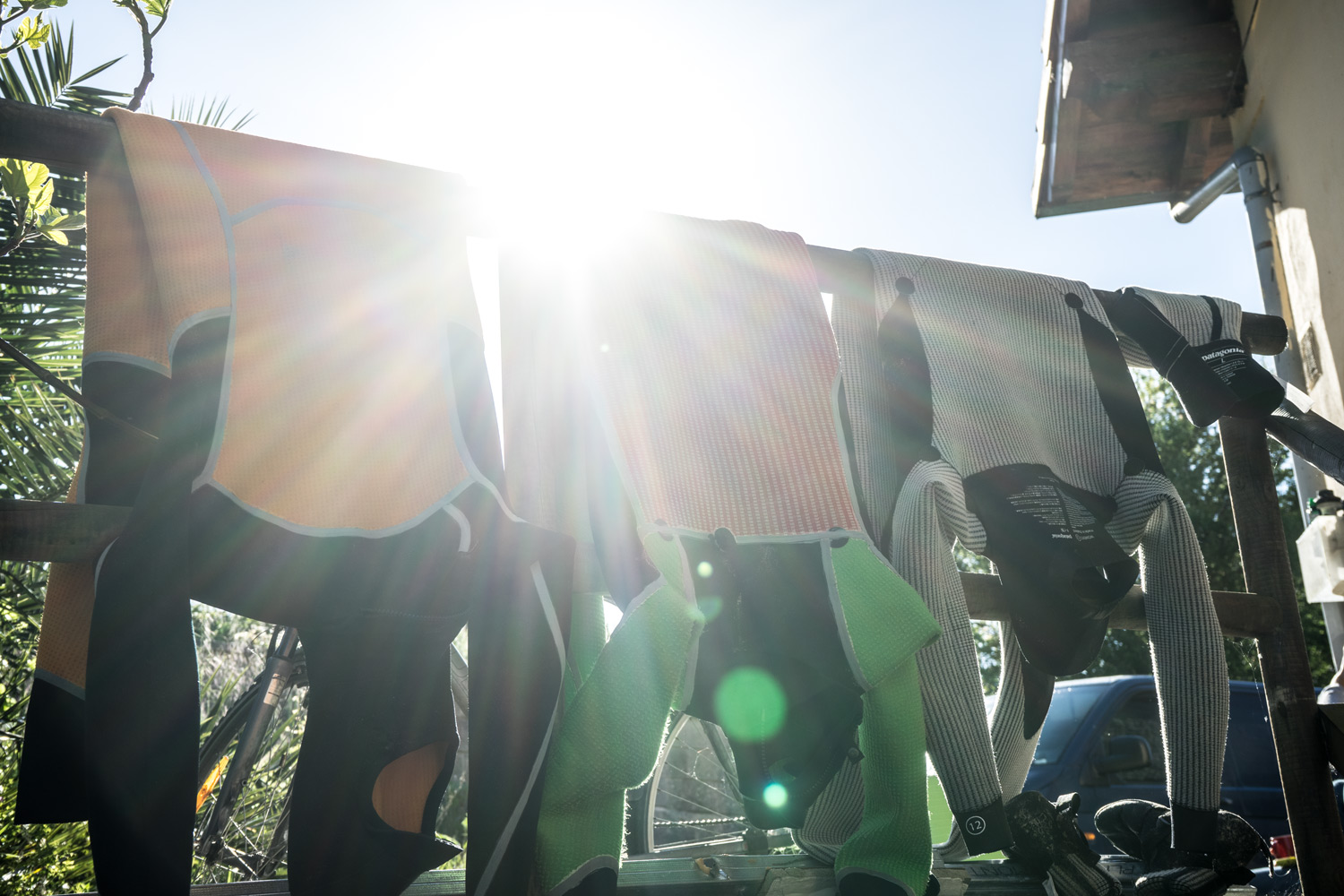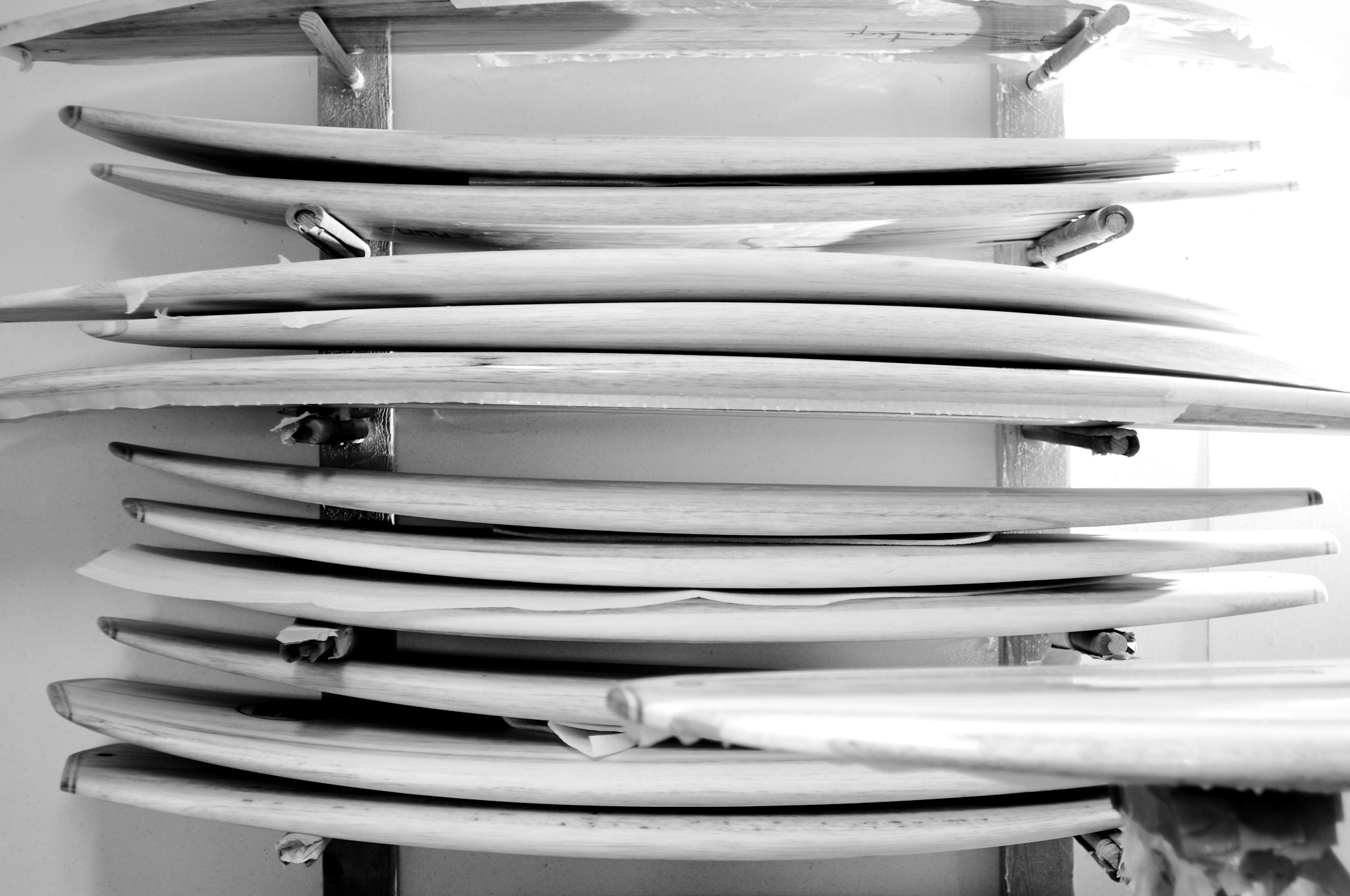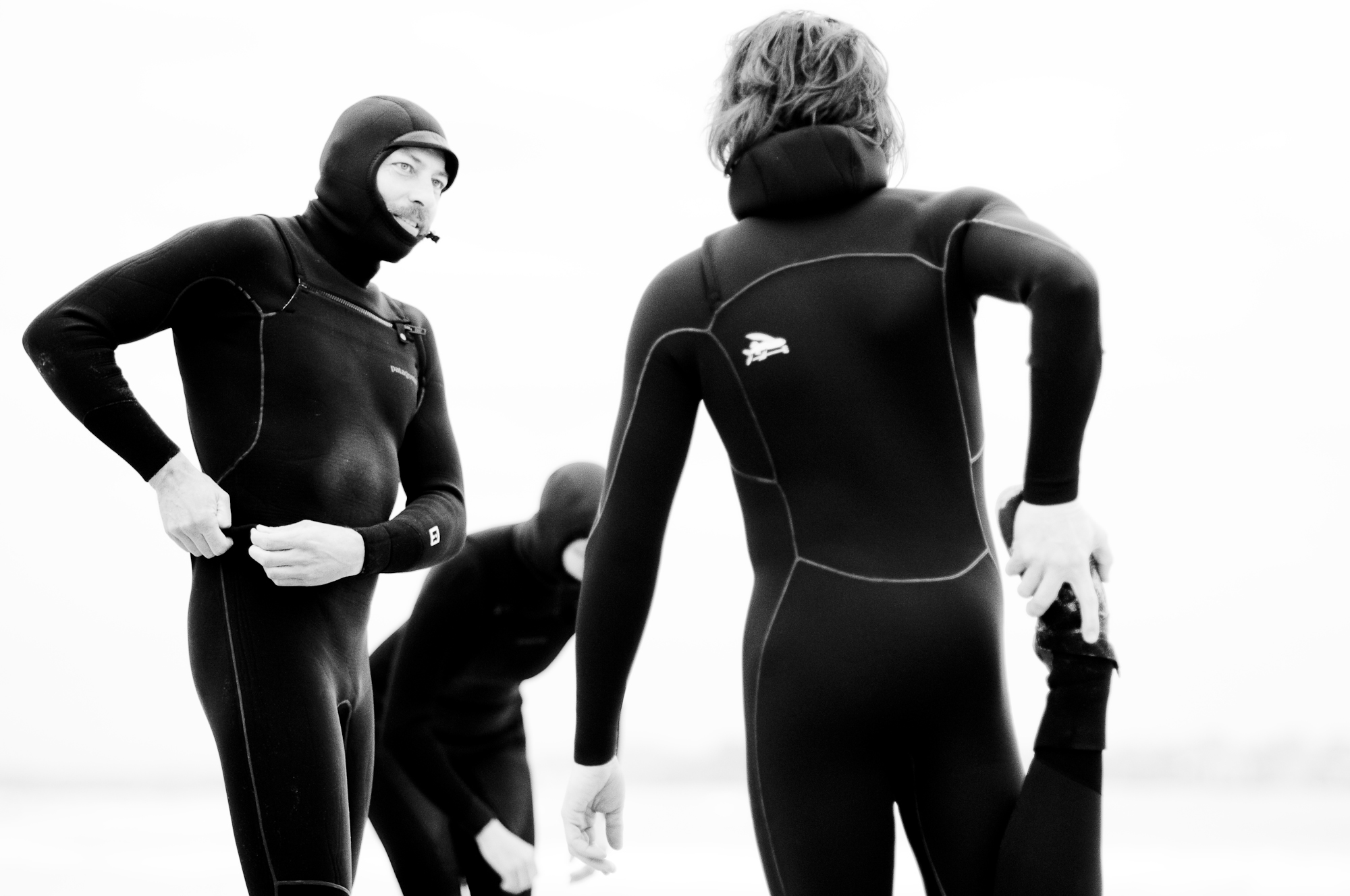“Patagonia’s Yulex® Wetsuit felt amazing on the body and even if I wish Patagonia would find a way to make it easier to get in, once inside, it’s like a second skin… I really love the logo and its placement. Every time I see it, I think of a waterman’s lifestyle, where your meals are made from self caught fish and where living simply is the most fulfilling expression of existence.”
– Jeckybeng
TECH SPEC
Almost all you care about when you buy a winter wetsuit is how warm it’s going to keep you and for how long. As the most progressive wetsuits on the market tend to get lighter and lighter, but the neoprene material has a tendency to loose its characteristics quite fast, making the wetsuit obsolete early.
Although warm is good, flexibility is a must. In winter your cold muscles might not react as fast as during summer time and you need a flexible wetsuit to paddle with ease through the massive walls of white water that the ocean will throw at you. A good thing is, that the new Yulex® is lighter and more flexible than the previous models. Time will tell if the durability of this new material is worth the investment. But for now the wetsuit feels super warm and quite comfortable.
GreenroomVoice statement on the ecological and social performance:
The natural rubber called Yulex® is FSC (Forest Stewardship Council) certified, originating from well-managed plantations. The assembly facilities of the Patagonia wetsuits are audited for social standards.
The lining, which is about 10% of the total wetsuit, is made from recycled polyester. Wetsuits in general are made of a material mix containing neoprene (ca 40%), fillers and other chemical products (50%) and lining (10%) to give it its useful properties, like warmth, skin friendliness, stretch and strength. Patagonia has replaced the environmentally very critical “neoprene” part of the wetsuit by natural rubber (85%) and synthetic polymers (15%) to keep it UV resistant and more durable.
This combination of material is a huge step in the right direction, keeping the harm to the environment as limited as possible, like Patagonia promised us. There is still no end of life solution for wetsuits in place- even though there have been project studies by the surf industry conducted in the past. Of course you can always cut them up, Patagonia makes beer can holders out of the old and useless pieces, they can get their hands on- and that is certainly better, then burning them or throwing them into landfill. So, bring it back, if you don’t need it anymore. But the commitment to find a solution for recycling is on and maybe they have something up the sleeve… so stay tuned.
Excerpt from the story about our micro adventure in cantabria by Stephane Robin:
Three days to get out there. That’s about all you have on a weekend of spring to get away from your daily routine and find some excitement in the big open spaces. Swell forecast was not super exciting but, hey. Enough to experience the highs and lows of the Spanish northern coast and we were going to make the most of it. Stored in the van under the bed, was the infamous Patagonia Yulex® Wetsuit to try out, which will be in the stores in August. An awesome piece of equipment, which solves part of the environmental challenge connected to wetsuits. The neoprene material part of conventional Wetsuits has a high energy and chemical impact.Patagonia has exchanged that for Yulex®, which is made from natural rubber.
An invitation took us about one hour south of Bilbao, in the beautiful beach town of Loredo. When you see the gentle waves that roll in softly you understand why Hossegor is the best beach break in the world. It’s not given to any spot to break in powerful A-frame with a spit of white foam coming out on every set. But you don’t always need that to have some fun. That’s what Stefan Weckert the shaper of Kun_tiqi surfboards found out.
Installed in Laredo for about a decade now, the German shaper had quite a journey making a name for himself in the very exclusive world of board shapers. When he started to import balsa boards from Ecuador, he didn’t imagine it would take so much time and energy to get a business going, especially with sustainable surfboards.
But the endless days he spent working in fish factories for a few € an hour just made him stronger. He always believed in crafting eco-friendly boards, as it makes a lot of sense to him. And now, that the orders are starting to come in at the beginning of the season, he feels more confident about his future.
We found him and his wife Simone on the parking lot of Loredo beach. «Waves are not big but there is enough to play» he said, getting his Patagonia wetsuit from 2011 out of the trunk. “It was the first they ever did”, explains Stefan, the official Patagonia dealer. The 2-foot surf session with friends ended up quite well with a huge bocadillo from the local restaurant.







